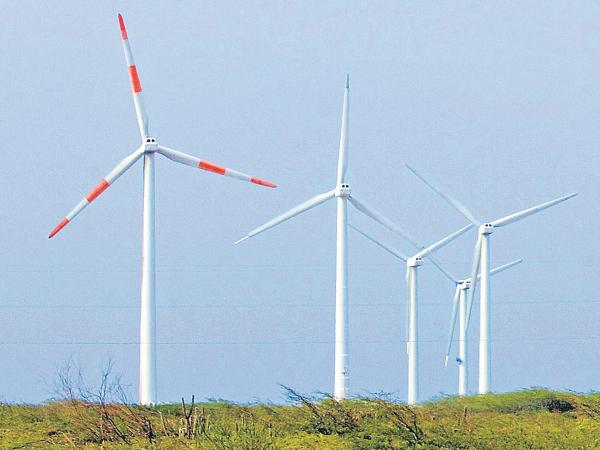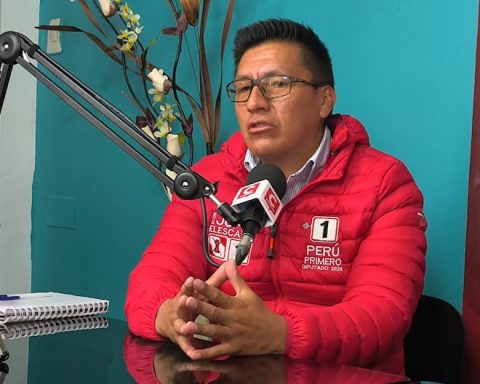
The result was not surprising. From early on, the conventional constituents considered that the articles of the Environment Commission’s report would be mostly rejected, along with predicting that only 20% of this document would be approved. And the result was close to those figures: of the 40 articles –including the 2 transitory ones–, 6 were approved in general and will be voted on today in particular. The rejected were 34 and will return to the commission to be modified, several of them with less than half of the votes of the constituents in office. The conventional ones have 3 business days to enter indications, that is, until Monday. This is because, after a recent vote, Saturday is considered a business day.
Among the constituents that make up the commission, they downplayed the rejection of a large part of the report, assuring that, unlike what happened with other commissions, in this discussion it was preferred to reject in general, improve the rule as soon as possible with new wording and indications , and not risk rejection in particular, as has happened. They highlighted that, although there are points in which it will be difficult to agree on two-thirds, there are others in which modifications to the wording will be sufficient to reach consensus, taking into account the uncertainties or doubts that some constituents made present that are generated in the citizenry, especially with small farmers and communities that are dedicated to livestock or artisanal fishing.
The approved articles include the recognition of a climatic and ecological crisis caused by human activity, the recognition of non-human animals as sentient beings and the right of binding and incidental participation in environmental decision-making, which –in the opinion of one constituent – constituted “the backbone of the minimum that should be advanced in a climate context such as the current one”. Those rejected were all those that included aspects related to the native peoples (PP.OO.), where right-wing sectors claimed that the indigenous importance was superimposed over that of the rest of the citizens – which was refuted by the same constituents of the PP. .OO.–, also the one that consigned Nature as a subject of law, as well as the one that established the Natural Commons, which turned out to be one of the central debates.
One of the coordinators of the commission, Camila Zárate, analyzed the result and stated that, although these articles had a majority in the commission, “what was later lacking was the dialogue between the different members of the commission, their different groups, who They feel that they could have participated much more with their different representatives. Let’s not forget that the Broad Front does not participate directly in this commission, but in any case we invited them and they were part of the instructions”. In her opinion, there were efforts at dialogue, but they are still lacking. In addition, she accused a media siege of the business community, stressing that “we know that we are seeing the economic model associated with environmental protection (…). These are sensitive issues, they are complex issues.” Her partner in coordination, Juan José Martin, stressed that it is the first time that two visions meet, two worlds that have never had a dialogue before, on the environmental issue.
However, right-wing constituents celebrated the rejection of a large part of the articles. The conventional Rodrigo Álvarez (UDI), a member of the commission, opined that “it was a deeply mistaken report, disproportionate to the needs of our country, which created absolutely incorrect legal categories, so we think this is a good result for Chile.” and added that it was a “profound defeat for radical environmentalism, the Taliban.”
Constituent Tania Madriaga (Plurinational and Popular Coordinator) maintained that “the result of the voting was very negative, since resistance was expected, but not at the level in which it was expressed” and that “by listening to the speeches of many conventional members, it is clear that there is a resistance to change regarding the concrete measures that are being proposed, despite accepting the reality of the climate and ecological crisis we live in. This is unusual, because it shows the little awareness and commitment regarding the responsibility of human activity in this crisis and, therefore, in search of new forms of production, distribution and consumption”. Despite this, she Madriaga said she believes that there are sectors that can change her vote in the second passage of the articles by the Plenary.
The detail of the approved
The articles approved in general were: 1 (with 110 votes in favor, 26 against and 13 abstentions), which establishes that “the State recognizes the existence of the climate and ecological crisis as a consequence of human activity” and that it is their duty to take measures to manage risks, vulnerabilities and effects. Also the number 5, which establishes that “it is the duty of the State to guarantee and promote the rights of Natureand must carry out all the necessary measures of precaution, repair, restoration and regeneration when there is or is a risk of degradation or environmental damage.
One of the most relevant, and which was the subject of several Standard Initiatives –both by constituents and popular ones– was the number 23, which establishes animals as sentient beings and not as furniture, as currently recognized. “The State will protect animals, recognizing their sentience, individuality and right to live a life free from abuse. The law will establish the other rights of animals, a public service for their protection and non-extinction, an action for their guardianship, the protection of their habitat and the prohibition of practices that subject them to cruel treatment”, details the proposal. It was approved with 103 votes in favor, 28 against and 20 abstentions. Among the votes against were members of the UDI and the hardest sector of the right, in addition to members Felipe Harboe, Christian Viera and Isabella Mamani (PP.OO.). Among the abstentions were constituents from RN and Evópoli, some from the Colectivo del Apuebo and several representatives of indigenous peoples.
In the interventions, the Aymara constituent Luis Jiménez pointed out that he agreed with establishing that non-human animals are sentient beings, but that “a rule written as it is can give uncertainty about what our relationship with animals will be, because we practice traditional ancestral livestock, and we still have fears that a very strict interpretation could cause some implications with that. It can be improved if it goes back to committee.”
The constituent Alfredo Moreno, from Vamos por Chile, also said that he agreed with the sentience of non-human animals, who did specify that “what has been said in the Environment Commission is that this is a civilizing proposal and to seek a food model that is not based on the suffering and death of an animal. A Chile without roasts?
Added to the approved items is the 25, which specifies that “the State will promote an education based on empathy towards animals and will tend, through the law, its bodies and public policies, to animal welfare”, with 103 votes in favor, 16 against and 34 abstentions. The votes against included some from the Broad Front.
Furthermore, the article 33, where “the right of binding and incidental participation in environmental decision-making is recognized. The participation mechanisms will be determined by law”, which the constituents highlighted as one of the most relevant, ensuring that it is a door to prevent the advancement of environmental projects that have a transversal and broad rejection of the communities, including mayors of all political tendencies. Finally, the 37, which establishes that “everyone has the right to access public environmental informationwhich is recorded in the power or custody of the State, of the companies, institutions and organizations that provide services to the State.
Among the rejected articles that were counted as the most debated, are the one that established Natural Common Goods, such as water, wind, solar radiation, among others, in addition to the one that established Nature as a subject of law and that had generated harsh speeches from constituents of Vamos por Chile, who claimed, for example, that only those who generated culture were subjects of law, along with asking who would represent Nature in the event of a conflict.
*Follow here the progress of the draft of the new constitution

















